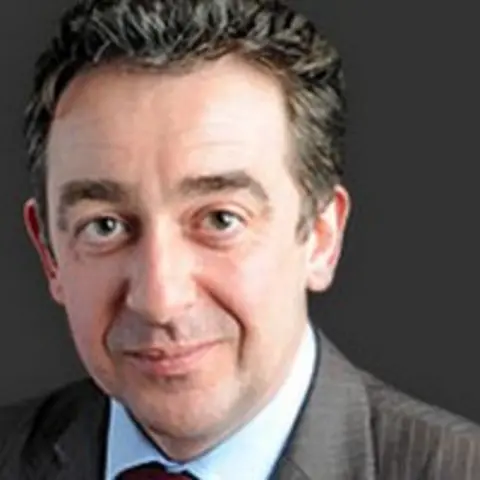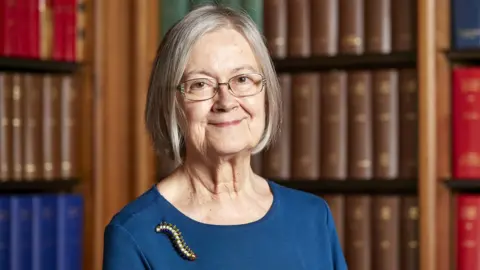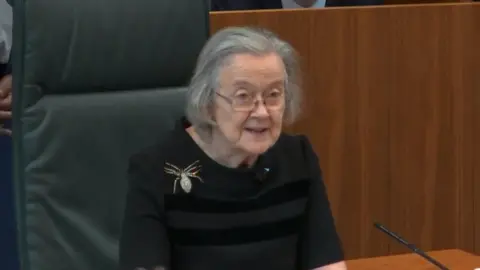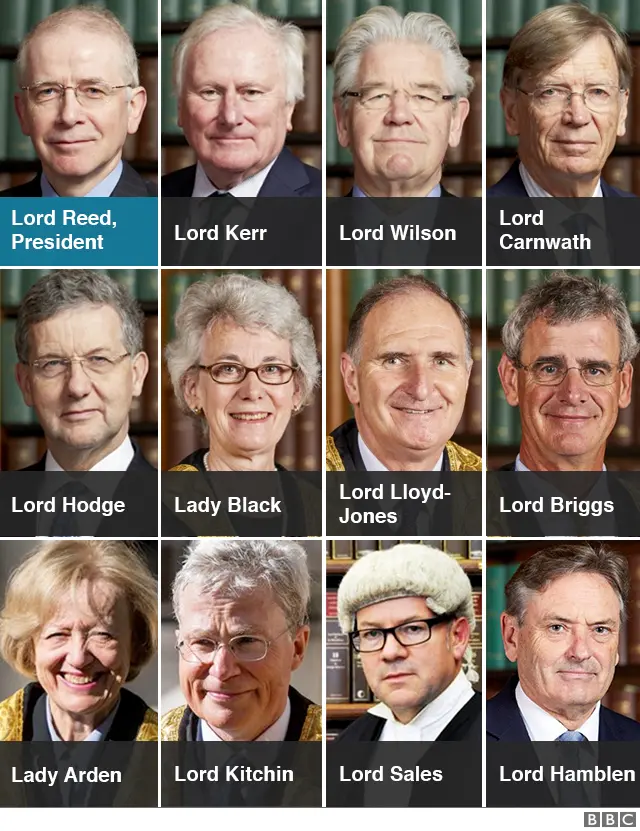What is the UK Supreme Court?

 Supreme Court HO
Supreme Court HOLady Hale, the brooch-wearing judge who delivered the ruling that Boris Johnson's suspension of Parliament was unlawful, has retired from the UK Supreme Court.
Who will follow her as its president and what does the Supreme Court do?
Who is Lady Hale and who will replace her?
Lady Hale was president of the Supreme Court from September 2017 to January 2020 and oversaw the decision on the suspension of Parliament.
She is among the most well-known judges in the world. Before she became a judge, she was the architect of the UK's internationally-recognised laws on the rights of children.
As the first female justice, she has been critical of the lack of female representation on the body in the past. She stood down in 2020 in line with retirement rules for judges.
Lord Reed is the new Supreme Court president. The senior Scottish judge also sat in the European Court of Human Rights. He led the important Supreme Court ruling that overturned high employment tribunal fees which had led to claims that people were being denied access to justice.
What is the Supreme Court?
It is the highest court in the United Kingdom. The judges, known as justices, have the final say on the biggest legal issues. They are the ultimate check and balance on the UK's laws and constitution.
Their job is no different to many comparable bodies in other countries. They rule on what a law means when there is a dispute. These are cases that raise what the court considers to be genuinely important points that affect the nation.
Their judgements set out how a law should be interpreted and applied. Only a third of the cases that it is asked to rule on are heard by the Supreme Court.
The court sits opposite the Houses of Parliament. Its location symbolises the relationship between the two. Parliament makes the laws and the Supreme Court oversees their ultimate interpretation and fair and just use.
What cases does it hear?
Over the course of its first 10 years of work, the court has delivered many judgements that have changed the nature of the UK.
But its arguably most important case was 2019's decision to rule that Prime Minister Boris Johnson had broken the law by proroguing (suspending) Parliament for five weeks as he faced division over the Brexit process.
 PA Media
PA MediaThe justices hear cases that have been considered in lower courts in any part of the United Kingdom, other than some issues from Northern Ireland and appeals against criminal convictions from Scotland.
There is always an odd number of Supreme Court justices to decide on cases, so that if they disagree on the outcome, there is a majority ruling one way or the other.
Since October 2009 it has heard and decided on more than 835 cases.
Here are some examples:
- Two 2018 judgements meant the police could be sued for compensation, after 76-year-old Elizabeth Robinson was knocked over and when detectives botched a solvable investigation into the John Worboys serial rapist case
- In 2016, the justices said a law about gang murder had been wrongly interpreted for 30 years
- Three years later, justices backed end-of-life decisions
Can the Supreme Court strike down laws?
Only Parliament can pass or cancel laws. The Supreme Court's role is to decide on the correct interpretation of those laws when there is a dispute.
If the justices think a law conflicts with human rights safeguards, it can tell Parliament it should reconsider the legislation - but the government is under no legal obligation to act on that.
Who are the other Supreme Court justices?
New justices are appointed by the Queen on the recommendation of a panel of legal experts from each of the UK's nations. Applicants must have been a High Court judge for at least two years or a practising lawyer for 15.
These are the other members of the Supreme Court.

- Lord Hodge is the deputy president and the second Scottish judge on the panel of 12. He specialises in commercial law, in particular intellectual property and land valuation.
- Lord Kerr was Lord Chief Justice of Northern Ireland before joining the Supreme Court at its 2009 opening. As the only Northern Irish justice, he argued for free NHS abortions to be given to Northern Irish women when they travel to England, but the Supreme Court rejected the case.
- Lord Wilson is one of the UK's most experienced judges in family law, having spent 12 years ruling on those cases.
- Lord Carnwath is an expert in company and commercial law. He has a particular interest in environmental law.
- Lady Black is another expert in family law who has taught students at university and, from 2010, also sat as a Court of Appeal judge.
- Lord Lloyd-Jones is the Supreme Court's judge from Wales and a Welsh speaker. He specialises in international law He chaired the Law Commission - which advises the government on which laws need reforming - up until 2015.
- Lord Briggs was appointed to the Court of Appeal in 2013. Three years later he became deputy head of civil justice.
- Lady Arden was a Court of Appeal judge for 18 years and another former head of the Law Commission.
- Lord Kitchin is an expert in the complex branch of commercial cases that deals with intellectual property, such as patents that protect an invention from being copied by a rival.
- Lord Sales was in the original court which ruled the government must ask Parliament before invoking Article 50, the part of EU law which gives any country the right to leave the EU. This led to the Daily Mail labelling him and the other two judges as "enemies of the people."
- Lord Justice Hamblen is the newest member. He's been a senior judge since 2008, specialising in commercial law.
- Two more new justices are in the wings waiting to be sworn in later in the year as others retire.
What's the court's future?
Since Mr Johnson lost the prorogation case, there has been a drip feed of stories implying the court got the decision wrong and will face reform. Some Conservatives say judges snatched powers they never had.
The Conservatives' 2019 general election manifesto pledged a constitutional review which would include the courts. It did not explicitly single out the Supreme Court for reform - so what may happen is unclear.
Any attempt to water down the court's powers is likely to face a rocky road. Many lawyers would see this as an act of political revenge.
Is the Supreme Court under the control of a European Court?
No. There are two unrelated European Courts. The European Court of Justice (ECJ) oversees EU laws on trade and so on that are passed by the member states. When the UK leaves the EU, it will not be part of that system, unless it were to choose to be, as part of a deal.
The entirely different European Court of Human Rights (ECtHR) was set up (largely at the instigation of the UK) to protect the rights of ordinary people across the continent from undemocratic use of power. It hears very few cases against the UK government as most human rights cases are dealt with by British judges. The Supreme Court takes into account the views of the ECtHR but is entitled to reject its conclusions.
